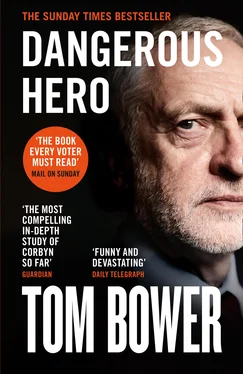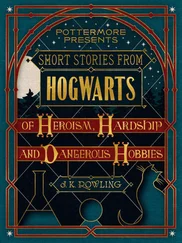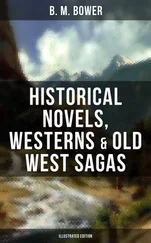Most travellers who crossed into Czechoslovakia from Austria during the Cold War were shocked by the experience. Running just behind the customs buildings were two rows of electrified barbed wire. Between them was a wide, sandy strip of ground concealing a minefield. Looking out over the eerie silence were armed soldiers in guard towers, with orders to shoot on sight anyone approaching from the Czech side. Those caught within five miles of the border without police permission could expect imprisonment. Any Western visitor riding a motorbike through those fortifications would be left in no doubt that Eastern Europe was a prison. Czechs were badly dressed, had limited food, and lived in decaying buildings. Czechoslovakia, a rich democracy before 1939, was a police state. But Corbyn uttered not a single word of criticism, and expressed no sympathy for the country’s 1968 attempt at liberation from the Soviet Union. He simply dismissed what he was seeing as a delusion, just as he dismissed the victims’ accounts of the horrors of Soviet Russia. He wilfully ignored the despair suffered in the name of ‘social justice’ not only by Czechs, but by hundreds of millions of people in Russia, China and the other countries in ‘liberated’ Eastern Europe. He said nothing about the thousands of skilled and scholarly Czechs forced to take menial employment as street cleaners or worse, as punishment for opposing the Soviet occupation. ‘He was a Tankie,’ said Keith Veness, meaning that Corbyn had supported the Soviet suppression of the Hungarian revolt in 1956 and the Prague uprising twelve years later. When in conversation Veness mentioned Stalin’s cruelties, ‘Jeremy walked away. He couldn’t do political arguments. He was a communist fellow-traveller. The bastard never apologised for the Moscow trials.’ In that Cold War era, Corbyn’s sympathies were stark. ‘NATO’s object’, he said, and that of ‘the war machine of the United States is to maintain a world order dominated by the banks and multi-national companies of Europe and North America’. Only the South Americans deserved to be liberated – from American imperialism. Both during that European holiday and throughout their relationship, Corbyn never mentioned to Chapman his time in Jamaica, nor his interest in Guyana or Cuba. Considering the profound influence those places supposedly exerted on his world view, his silence was remarkable.
The Corbyns returned to London with Jeremy unaware that their marriage was cracking up. ‘Jeremy never thought there was anything wrong,’ recalled Chapman. ‘He assumed that, because our politics were compatible, that amounted to a proper relationship.’ ‘She tried to make it work,’ said Keith Veness, ‘but he was uninterested. He never came home, and the relationship just slowly broke up.’ Chapman’s requests for more than just a political life – cinemas, restaurants, clubs, children – were ignored. ‘He didn’t acknowledge my emotional side,’ said Chapman. ‘He doesn’t recognise a woman’s feelings.’
Despite their disagreements, early on 20 August 1976 the two set off to Willesden in north London to join the picket line outside Grunwick, a film-processing plant where female Asian workers were on strike and unsuccessfully trying to prevent strike-breakers taking their places. During that long but forlorn struggle, Corbyn became a familiar face as a footsoldier against employers. ‘Jeremy was a Trotskyist,’ recalled Chapman. ‘No doubt about it.’
A hammer blow to the left fell in September 1976. The pound’s value sank still further, and the markets were in turmoil. Britain once again became the ‘the sick man of Europe’. While some spoke of humiliation, Tony Benn and Corbyn saw an opportunity to introduce draconian controls to create a socialist economy. Jim Callaghan took the opposite view. The government appealed to the International Monetary Fund for a loan – the biggest in the IMF’s history – and agreed to reduce inflation by cutting public expenditure and imposing pay limits. The left was outraged. If taxpayers’ money and huge loans were not spent by the government, they believed, unemployment would soar. Labour was irreconcilably split. In the ideological battle chancellor Denis Healey was on one side, Benn and Corbyn on the other, shouting slogans on marches in support of Benn’s ‘alternative economic strategy’. It was a dialogue of the deaf.
On his own patch, Corbyn worked towards a breakthrough. In the 1978 council elections, contrary to predictions that Labour would do badly because of the huge rates increases, his vigorous organisation produced a high turnout, and Corbyn turned the tide by using his links with the immigrant community, who agreed to come out to vote. The count was held in the cavernous Alexandra Palace, an exhibition hall built in the nineteenth century overlooking London and fittingly called ‘The People’s Palace’. Seeing the piles of Labour votes outnumbering the opposition’s, Corbyn felt rewarded. Compared to the national 8 per cent swing to the Conservatives, there was a 2.5 per cent swing to Labour. Excitedly he awaited the formal announcement of victory and then, with a clenched-fist salute, led the singing of ‘The Red Flag’. The Tories had been trounced. Under the headline ‘Hornsey Defies National Picture’, the local newspaper described Labour supporters as ‘ecstatic’, while Tories ‘wandered around dumbfounded’. Keith Veness judged that Corbyn’s skill was to pose as ‘everyone’s mate and not a faction-fighter’. Others, including Sheila Berkery Smith, a former Labour mayor of Haringey who had served twenty-four years as a councillor, saw a different figure. On Corbyn’s orders, she had been deselected from the party’s slate. Where others saw the friend to all, she saw ‘intolerant Marxist extremism’.
The Corbyns were duly rewarded for their hard work. Chapman became chairman of housing, while Corbyn was made head of the Public Works Committee. Houses had up to that point been given to families in need; Chapman instead allocated homes to gays and single mothers. Moderate Labour councillors became alarmed. ‘She was a classy but poisonous lady,’ recalled Robin Young, the party whip in Haringey. ‘Cold, extreme left and not capable as a chairman.’ Others noticed the competition between Corbyn and his wife, and judged Chapman the superior talent. Mark Killingworth, a left-wing committee chairman and an ally of the Corbyns, recalls Jeremy as ‘hungry for power’. Already at that early stage, Killingworth observed, ‘his ambition was to be an MP’.
As the chairman responsible for the council’s services to the community, Corbyn once again set about hiring more workers, doubling the size of the direct labour workforce and increasing their wages. No one mentioned that as a NUPE official representing those council employees, he had a clear conflict of interest. In his mind, that notion was a capitalist ruse. Rewarding the workers was his duty. As a man devoted to causes rather than to the hard graft of implementing decisions and managing their consequences, he had no difficulty spending money to enrich his members. Here he imitated Keith Veness, who as a councillor negotiated on behalf of the ILEA, with Corbyn representing the NUPE workers. ‘I gave NUPE as much as possible,’ recalled Veness, who preferred dealing with Corbyn than with Bernie Grant, who, he complained, would threaten employers with physical violence. By contrast, Corbyn allowed his shop stewards to do the intimidating. The result was the same. Tony Franchi, a wood craftsman and Tory councillor, accused Corbyn of the ‘misuse of our money’. On one occasion he watched five council workers arrive outside his workshop in Crouch End to sweep the road. ‘Only one man did any work. The other four stood smoking cigarettes.’ This was not just a Haringey problem: the waste, repeated across the country by Labour councils, became unaffordable.
Читать дальше










